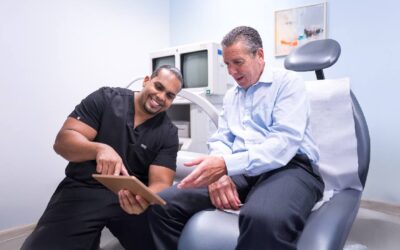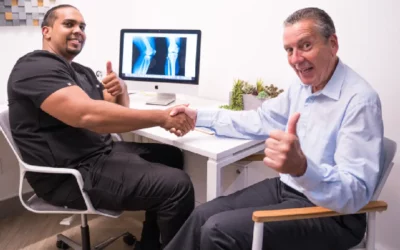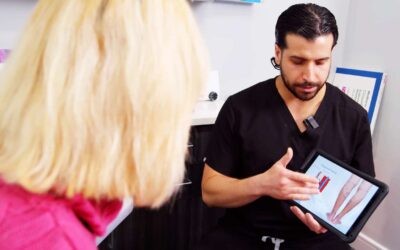How To Stop Leg Cramps?
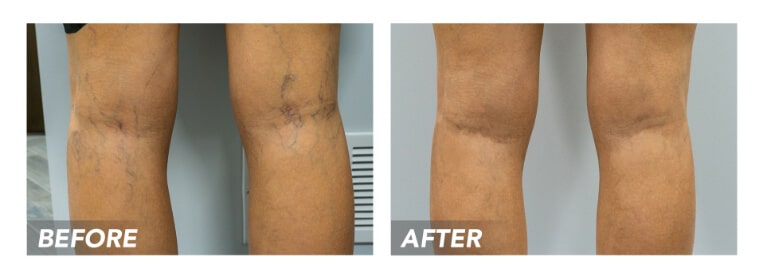
If you have ever experienced a leg cramp, you know how painful it can be. Leg cramps are involuntary muscle contractions that can last from a few seconds to several minutes. These cramps can occur in any muscle, but they are most commonly felt in the calf muscles.
At New Jersey Vein Treatment, we understand how uncomfortable leg cramps can be, especially if they are chronic. Therefore, we have compiled a comprehensive guide on how to stop leg cramps. We will cover various topics such as the causes of leg cramps and what you can do to alleviate the pain.
Causes of Leg Cramps
Leg cramps can occur for a variety of reasons, including:
- Dehydration: Dehydration is a common cause of leg cramps, especially in athletes and people who exercise regularly. When the body is dehydrated, there is an electrolyte imbalance in the body, which can cause muscle cramps.
- Overuse of muscles: Overuse of muscles can also lead to muscle cramps. This is especially true in athletes and people who perform repetitive motions for extended periods. A muscle strain can also cause muscle spasms and cramps, which can be very painful.
- Poor circulation: Poor circulation can also cause muscle cramps, especially in the legs. When the veins in the legs are not functioning properly, the blood can pool in the legs, leading to swelling, pain, and cramping.
- Medications: Certain medications can also cause leg cramps as a side effect. Diuretics, statins, and beta-blockers are some of the medications known to cause muscle cramps.
- Chronic venous insufficiency: Chronic venous insufficiency is a condition where the veins in the legs do not properly pump blood back to the heart. This condition can cause a variety of symptoms, including leg muscle cramps.
- Varicose veins: Varicose veins are swollen and twisted veins that can cause leg cramps.
- Other conditions: Certain medical conditions such as liver disease, lung cancer, congestive heart failure, can cause leg cramps. Menopause can also cause leg cramps.
How to Stop Leg Cramps
If you experience leg cramps, there are several things you can do to alleviate the pain. Some of the most effective remedies are as follows:
- Stretch and massage: If you feel a cramp coming on, try stretching the muscle. If the cramp has already set in, gently massage the muscle to help it relax. Stretching and massaging the affected muscle can help to alleviate the pain and prevent future cramps.
- Apply heat or cold: Applying heat or cold to the affected area can help to reduce the pain and relax the muscle. You can use a warm towel or heating pad to apply heat or an ice pack to apply cold.
- Take a warm bath: Taking a warm bath can help to relax the muscles and alleviate the pain. Adding Epsom salt to the bathwater can also help to reduce muscle tension and pain.
- Wear compression stockings: Compression stockings can improve circulation and reduce the risk of leg cramps. Compression stockings apply pressure to the legs, which helps to improve blood flow and prevent blood from pooling in the legs.
- Stay hydrated: Drinking plenty of fluids can prevent dehydration, which can cause muscle cramps. It is important to drink water throughout the day, especially if you are exercising or spending time outdoors in hot weather.
- Exercise regularly: Regular exercise can strengthen the muscles and reduce the risk of leg cramps. It is important to engage in activities that help to stretch and strengthen the muscles, such as yoga, Pilates, or strength training.
- Take magnesium supplements: Magnesium is essential for muscle function, and taking magnesium supplements can help to reduce the risk of leg cramps. Magnesium supplements can also help to alleviate the pain of muscle cramps and reduce muscle tension.
When to Seek Medical Attention
In most cases, leg cramps are not a cause for concern, and they can be easily treated with home remedies. However, there are certain instances where you should seek medical attention. These instances include:
- If the cramp lasts longer than 10 minutes.
- If the cramps are severe and occur frequently.
- If the cramps are accompanied by swelling, redness, or warmth in the affected area.
- If you have a history of liver disease, kidney disease, or heart disease.
- If you have a history of blood clots.
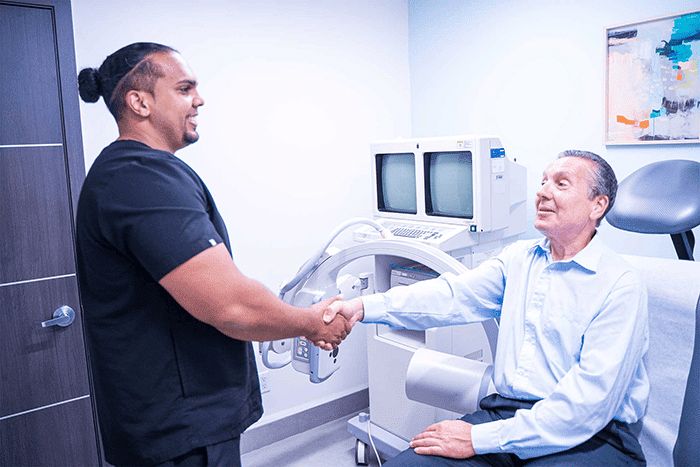
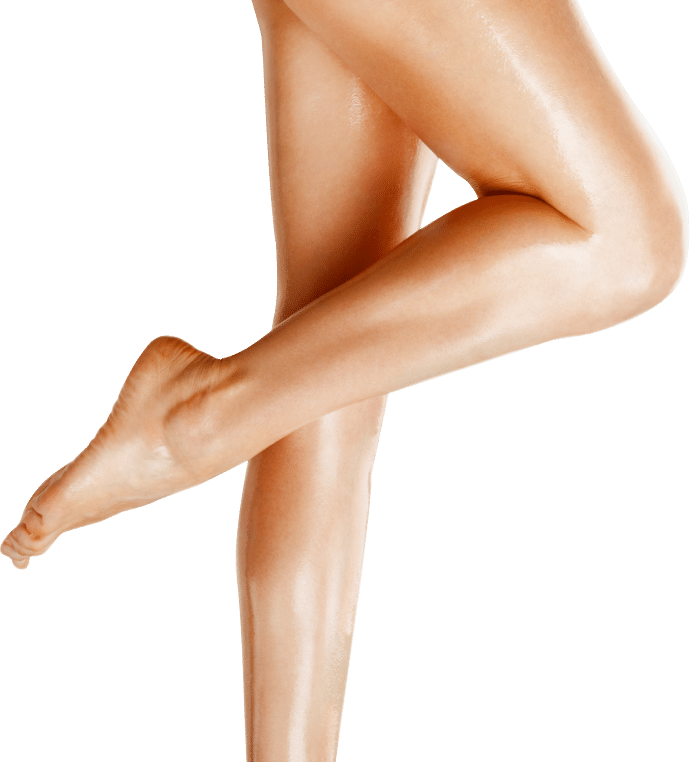
BOOK AN APPOINTMENT
Do you have any symptoms? Consult now with one of the Best Vein Specialist in New Jersey
Leg Cramps & Chronic Venous Insufficiency
Chronic venous insufficiency is a condition where the veins in the legs do not properly pump blood back to the heart. This condition can cause a variety of symptoms, including leg cramps. When the veins in the legs are not functioning properly, the blood can pool in the legs, leading to swelling, pain, and cramping. If you have chronic venous insufficiency, you may experience leg cramps at night or during periods of inactivity. These cramps can be painful and affect your quality of life.
In addition to leg cramps, chronic venous insufficiency can cause other symptoms such as varicose veins, leg ulcers, and skin discoloration. If you suspect you have chronic venous insufficiency, seek medical attention. At New Jersey Vein Treatment, we offer minimally invasive treatments for chronic venous insufficiency, including endovenous laser ablation, radiofrequency ablation, and VenaSeal. These treatments improve the function of the veins and reduce the symptoms of chronic venous insufficiency, including leg cramps.
Consult New Jersey Vein Treatment
At New Jersey Vein Treatment, we offer free insurance verification even before the first appointment. We always diagnose the root cause of spider veins and varicose veins via duplex ultrasound before curating a personalized treatment plan. Our board-certified vein doctors use state-of-the-art technology to provide minimally invasive treatments for chronic venous insufficiency and varicose veins, which can alleviate leg pain and other symptoms.
New Jersey Vein Treatment has five convenient locations throughout New Jersey. Our clinics are located in Clifton, Paramus, Woodland Park, Woodbridge Township, and Scotch Plains. Each of our locations is easily accessible from major highways, and we have ample parking available for our patients. Contact us today to schedule a consultation at one of our locations and learn more about how we can help you alleviate the pain and discomfort of leg cramps.
NJ Vein Doctors
Meet our team of New Jersey Vein Treatment Specialists
Vein Treatments are covered by most major medical insurances, including Medicare. Call us today to verify your insurance for FREE >
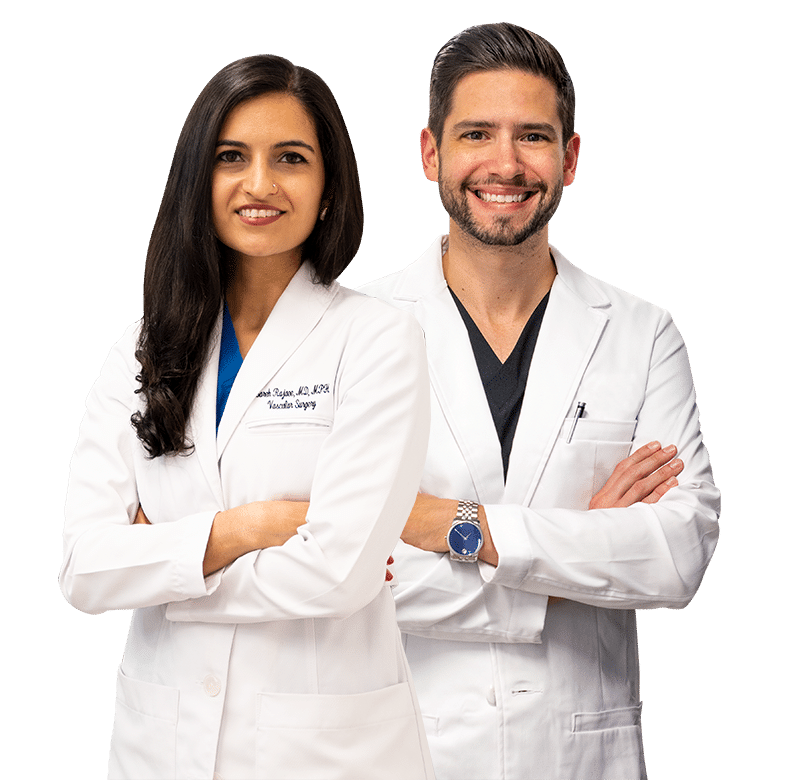
Meet our Team of Top Vein Specialists in New Jersey
Contact us
CALL US
Speak instantly with one of our team members; they will answer any questions you may have regarding insurance coverage, booking an appointment and our vein treatment locations. (973) 946-8082
BOOK APPOINTMENT
Visit our Book Appointment page and instantly request an appointment at the New Jersey vein center. We offer Free Insurance Verification before your appointment.
